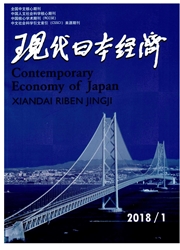

 中文摘要:
中文摘要:
日本在环境治理诸多方面取得了较好的成效,既得益于二战后日本官产学界在环境治理指导思想、理念和政策方面顺应形势地不断变化、更新和创新,又得益于日本在环境管理上设计了较为科学的体制。环境哲学与环境伦理、环境权理论与运动和环境社会学的兴起指引着日本环境治理实践的5个阶段。从日本环境治理的政策来看,环境政策工具的种类从单一简单走向复合多样,环境政策工具越来越重视经济激励手段和社会管理手段的使用。从环境治理的体制机制来看,健全的环境管理机构、合理划分环境管理责任与支出责任、环境治理过程中的社会参与是重要的保障。总结日本环境治理的经验,其“国家协调、地方为主、社会参与、市场激励”的治理模式值得中国借鉴。
 英文摘要:
英文摘要:
Japan achieves good results in a lot of aspects of environmental management, which both benefits from changing guiding ideology, idea and policies of environment management of Government - Industry - Uni- versity along with the situation after the Second World War and from Japma's relatively scientific environmental management system. Environmental philosophy and environmental ethics, theory of environmental right and movement and the rise of environmental sociology guide the five stages of Japan 's environmental management practice. From Japan's environmental management policies point of view, the types of environmental policy in- struments move towards complexity social management methods are in and variety from single and simple majority. The economic incentives and creasingly emphasized in the process of environmental instruments appli- mace. From the aspect of mechanism of environmental management systems, complete environmental manage- ment institutions, rational division of environmental management and expenditure responsibilities and social participation in the process of environmental management is the important guarantee. Concluded from the idea, practice and management system, Japan's management mode that national coordination, giving priority to re- gional government, social participation, market incentive is worth considering for China.
 同期刊论文项目
同期刊论文项目
 同项目期刊论文
同项目期刊论文
 期刊信息
期刊信息
